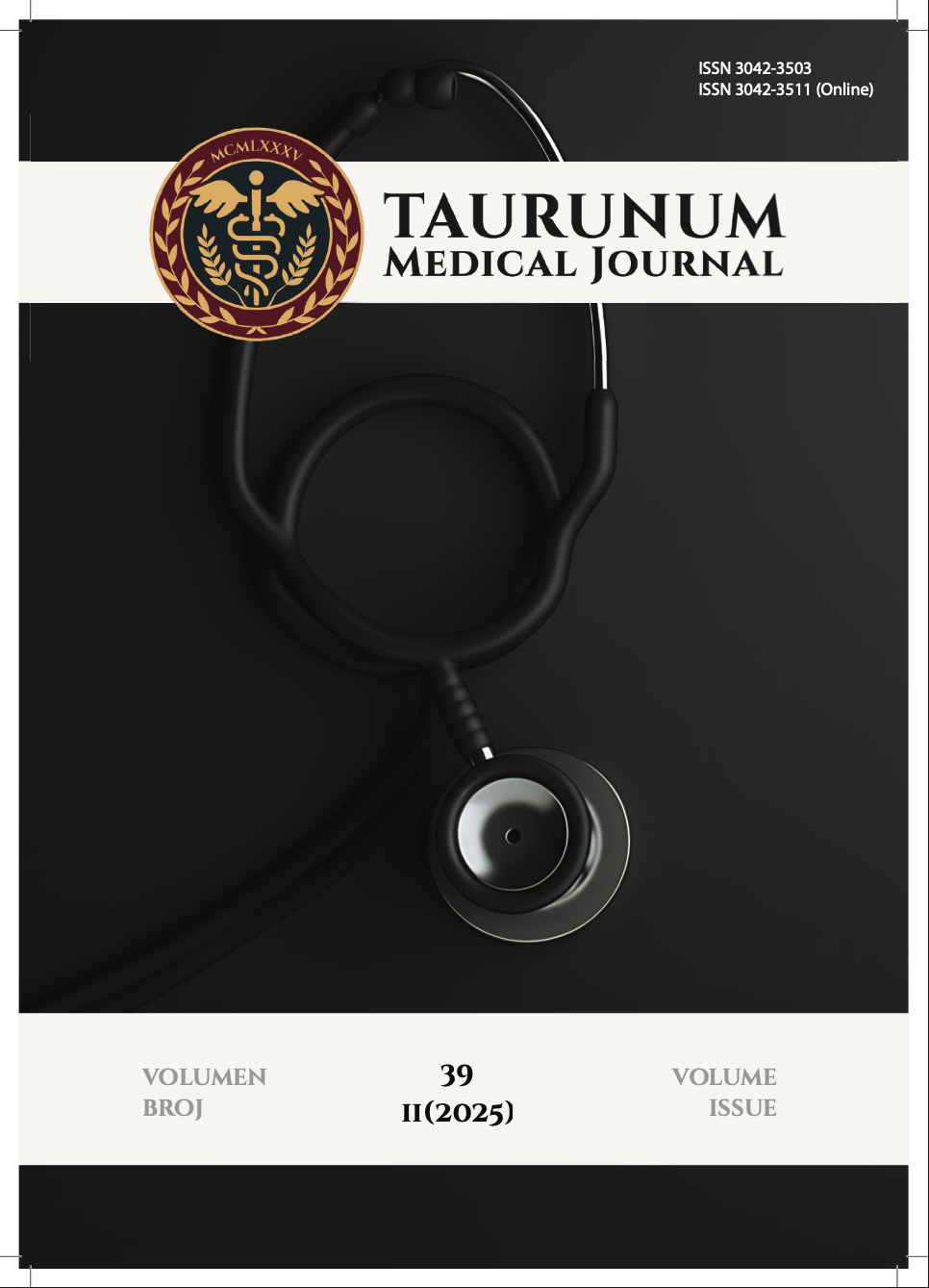Current issue

Volume 39, Issue 2, 2025
Online ISSN: 3042-3511
ISSN: 3042-3503
Volume 39 , Issue 2, (2025)
Published: 12.11.2025.
Open Access
All issues
Contents
01.04.2018.
Special Session: Residents Session
Prognostic significance of detection KRAS oncogene mutations in tumor tissue of patients with metastatic colorectal cancer
Aim: To determine prognosic significance of RAS oncogene mutation detection in patients with metastatic colorectal carcinoma (mCRC). Introduction: CRC is still third most common cancer of both genders and second cause of death from malignancy in Western countries. In recent years, detecting RAS mutation in mCRC tumor tissue has became an imperative in selecting patients for monoclonal antibodies targeted therapy to Epidermal Growth Factor Receptor (EGFR). Nevertheless, there is no consensus regarding prognostic relevance of determining RAS status in patients with mCRC. Material and methods: Study included 116 patients with surgicaly resected CRC at Oncology Insitute of Vojvodina between January and December 2016. KRAS mutation detection was performed in formalin-fixed paraffin embeded tumor tissue samples processed by real-time chain polymerase reaction (real-time PCR) and applyng Cobas® KRAS Mutation Test and Cobas® 4800 System for detection of mutations in codons 12/13 and 61 of KRAS gene. Results: Average age in tested population was 65 years, with a male gender predominance (66.4%). Presence of KRAS mutation was found in 50.9% patients: 44.8% in codons 12/13, 4.3% in codon 61 and 1.7% in both codons 12/13 and 61. RAS mutated colorectal carcinomas (n=59) compared with RAS wildtype colorectal cancers, were significantly associated with male gender, moderately differentiated tumors, lymphovascular invasion and local nodal metastases. Conclusion: Our results show that, beside predictive, KRAS can also have prognostic significance regarding risk assesment for lymphovascular invasion and presence of local and distant metastases.
Vasiljevic Tijana, Slavica Knezevic-Usaj, Tatjana Ivkovic-Kapicl, Ivan Nikolic, Protic Mladjan, Dimitar Jakimov



